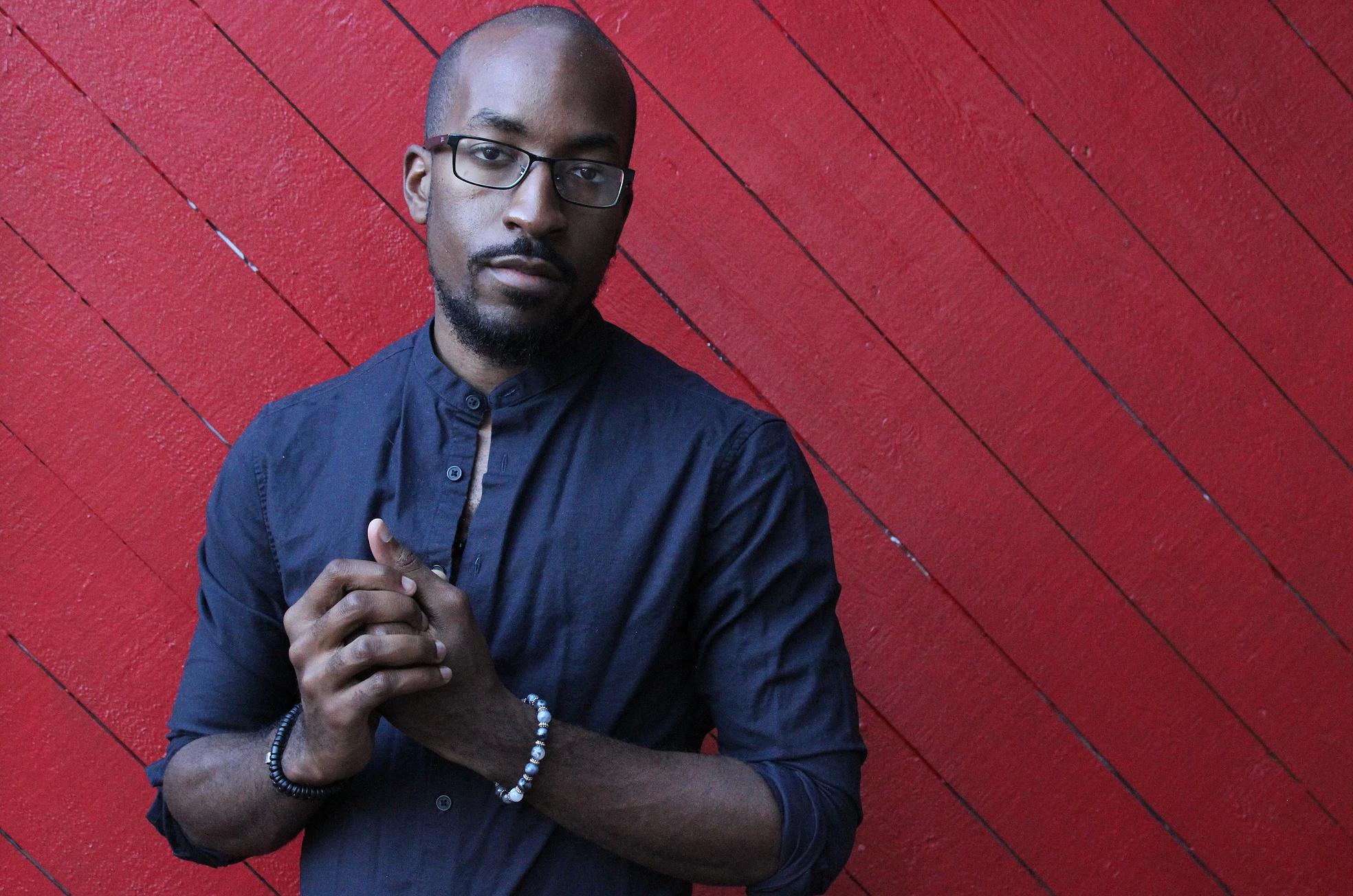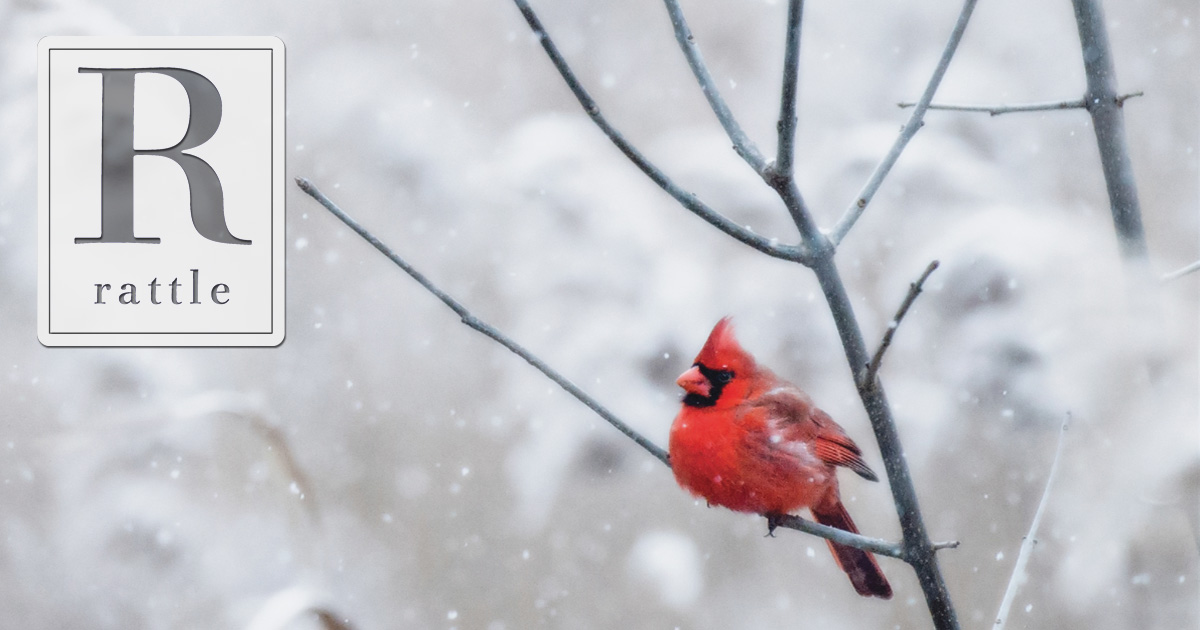I can’t stop imagining my own death on airplanes. I buckle my seatbeltand a propeller flies through the window and slices off my arm. I lookas my insides stream from the wound. If this doesn’t happen then laterthe plane will fall slowly and smash into a mountain. I am crushedlike a grape inside a fist. My mother asks me to text her every timeI board a plane. I never say I love you, only On the flight! Thenmy mind begins the dirty work. Visualizing how this couldkill me. I read that flying is the safest way to cross distance. Safetyrequires the accumulation of knowledge. My mother learned my fatherwas like two different people. His violence snuck up on him,and neither of them saw it coming. In one moment, he’d fill the fridgeand the next BAM his fist would come crashing down. A split pomegranateis how I picture my mother’s scalp, before the stitches. Burst open.I shouldn’t say that like I was there. I was barely a year. It doesn’t costmy body to imagine. Not really. I know the body is fragile by what I learnedwas done to my mother’s. The price of a lesson: to describewhat happened so that it might not happen again. An SOSin the sand. He lifted her up into the sky and held her there, gasping.There it is again. I don’t know what came over me. Sometimes,you make me so angry I just lose control. The pilot loses controland the whole plane rattles. I watch the babies cry. The last timeI saw my father was at an airport. Last can have so many meanings.Final. Most recent. Endure. Please stay. I stayahead of all the ways I could hurt a person, and fly off before they happen.The people I love say I leave and make them feel so far away.I didn’t mean to do that. I worry that if I feel too much I’ll go madand set the world aflower with something utterly unpredictable.Can you believe that? I am the stranger in the middle seat, bowed by turbulence,gripping wildly in the dark for your hand . Whispering, will it hurt.I don’t want to die. I can see it so clearly.Sometimes this happens. Sometimes the arm lashes outin ways that feel almost instinctive. Please, don’t take meat my word. I always mean to say I’m sorry.
Turbulence
Feature Date
- April 30, 2019
Series
Selected By
Share This Poem
Print This Poem
Copyright © 2019 by Dave Harris
All rights reserved.
Reproduced by Poetry Daily with permission.

Dave Harris is a poet and playwright from West Philly. He is a Cave Canem Poetry Fellow, a Callaloo Poetry Fellow, a member of The Working Farm at SPACE on Ryder Farm, and a 2018 Venturous Fellow at The Lark. His first full-length collection of poetry, Patricide, will be published in May 2019 from Button Poetry. Dave received his B.A. from Yale and is a second year MFA playwright at UC San Diego.

Winter 2018
California
Editor-in-Chief
Alan Fox
Editor
Timothy Green
Assistant Editor
Megan Green
Editor Emeritus
Stellasue Lee
Rattle’s mission is to promote the practice of poetry.
We feel that poetry lost its way in the 20th century, to the point that mainstream readers have forgotten how moving language alone can be. As a result, most people learn to find their feelings in music, movies, and novels, while poetry languishes on its lone shelf in the bookstores, waiting only for the occasional cameo at a university workshop.
But it shouldn’t take a scholar to be moved by the written word—great literature has something to offer everyone. All our lives are compelling, full of joys and burdens and profound experiences we should be sharing—and poetry is the most intimate way to share it. When you read a poem, you become the medium; the poet speaks in your voice, paints the canvas of your inner eye.
This connection is more direct than any other, and it doesn’t take a Hollywood budget to do it. Read the poems on Rattle.com for free. Write a poem on a napkin and share it with a friend. Keep a journal and send us a page. Participate. The pure love of language is one of the most important experiences in the history of human culture, and somehow most of us have forgotten about it.
More than anything, our goal is to promote a community of active poets. That means we care as much about submitters as subscribers. Lawyers, landscapers, homemakers, and Pulitzer Prize winners are all treated the same—and we’ve published them all. Many literary magazines cite a percentage of content that comes from the “slush pile,” meaning work sent in unsolicited. In most cases this percentage is less than 50%, meaning more than half of the content was solicited, meaning you never had a chance. At Rattle, almost every poem we publish starts in our “slush pile,” and has to rise through the same process of careful consideration. We only occasionally solicit work, and for representational balance, not prestige. We don’t ask for or publish the standard credit-listing bios; we don’t even read them. If we like your poem better than the Poet Laureate’s, we’ll publish yours. That’s what makes Rattle so readable.
Being an active community of poets also means that we’re always looking for feedback, and that the editors will always be available through email and Facebook and Twitter and whatever interactive technology comes out next. There’s nothing special about us; there is no ivory tower, and no etiquette to worry about breaking. So tell us what you think.
Rattle is published in several forms, in effort to find as many readers as possible, but the primary version has been our print issue, originally twice per year, but now appearing quarterly in March, June, September, and December. Each issue is roughly 100 pages of poetry and an interview with a contemporary poet. Most issues have a tribute section, focusing on a specific stylistic, ethnic, or vocational group. Recent tributes have focused on sonnets, African American poets, cowboy poets, visual poetry, and nurses.
Every poem we’ve published has or will appear on Rattle.com as part of our daily blog, which features a poem every day, or, occasionally, relevant prose. Many of the poems include an audio clip of the poet reading their work.
At Rattle, anything always goes. If a poem is accessible, interesting, moving, and memorable, if it makes you laugh or cry, then it’s the kind of poem that rattles around inside you for years, and it’s our kind of poem.
Poetry Daily Depends on You
With your support, we make reading the best contemporary poetry a treasured daily experience. Consider a contribution today.



